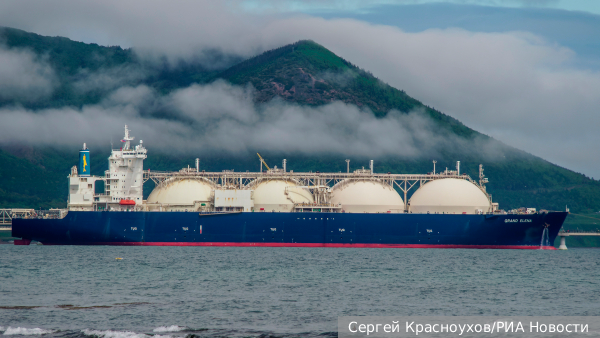
Sakhalin-2 is offering Shell's gas to China
By Rhod Mackenzie
Sakhalin Energy, which manages the Sakhalin-2 LNG project, is offering Chinese buyers 12 LNG cargoes per year for a period of 3-5 years, writes Platts. This amounts to around 1 million tonnes of LNG, which is comparable to the volume of Shell's offtake contract, which has now been terminated. By reducing the volume of spot sales, Sakhalin-2 is likely to hedge against a further fall in gas prices.
The operator of the Sakhalin-2 LNG project, Sakhalin Energy, is offering Chinese buyers a contract for 12 LNG cargoes per year (almost 1 million tonnes) for a period of three to five years starting in August, industry sources told Platts. According to them, the tender will close on 5 March and the price will be linked to the price of Brent oil. Sakhalin Energy did not respond to Kommersant's request for comment.
According to Platts, buyers from Japan were not invited to the tender, while Chinese sources expect that the slope coefficient in the new contract (i.e. the degree to which the price of LNG is linked to the price of oil) will fall below 12% for new buyers due to possible restrictions on imports of goods of Russian origin.
At the current Brent oil price of $83 per barrel, this slope of the curve corresponds to an LNG price of $10 per MBTU ($356 per thousand cubic metres).
Sakhalin-2 is a project to develop the Piltun-Astokhskoye and Lunskoye fields on the Sakhalin shelf, which has been implemented since 1994 under a production sharing agreement. The original shareholders in the project were Gazprom (50%), Japan's Mitsui (12.5%) and Mitsubishi (10%), and Shell (27.5%).
In the summer of 2022, Vladimir Putin signed a decree changing the operator of the project from Bermuda-registered Sakhalin Energy to Russia's Sakhalin Energy LLC. Mitsui and Mitsubishi agreed to change jurisdiction and retain a stake in the project; Shell refused to participate in the scheme and wrote off the book value of its stake - $1.6 billion. NOVATEK applied to buy Shell's stake.
In 2023, Sakhalin-2 will export 10.2 million tonnes of LNG, including almost 6 million tonnes to Japan, 2.58 million tonnes to China and 1.65 million tonnes to South Korea. Up to 90% of the supplies are sold under long-term contracts.
At the same time, Shell still has an offtake agreement to receive up to 1 million tonnes of LNG per year from Sakhalin-2 until 2028. After Shell's involvement in the project effectively ended, Sakhalin-2 sold this volume on the spot market, taking advantage of high gas prices. However, the operator is now likely to seek to contract comparable volumes on a longer-term basis with buyers in China.
With spot gas prices in both Europe and Asia falling below $300 per thousand cubic metres, Sakhalin-2 is likely to be unwilling to leave these volumes on the spot market, as it will suffer losses if spot prices continue to fall and fall below the level of long-term contracts.
However, buyers may also be reluctant to enter into new contracts due to uncertainty about future gas price trends.
Bloomberg reported at the end of January that Sakhalin Energy was negotiating with buyers in North Asia to raise prices. According to the publication, the project's contract prices are now at the level of 13% of the Brent oil price, while Sakhalin-2 is asking for long-term LNG prices with a slope of the curve of 14%.
If the contract implements an oil-linked coefficient of slightly less than 12%, this will mean that the Chinese side will receive a small discount on the "fair" price, since Qatar currently contracts LNG on a long-term basis with exactly this coefficient, notes independent expert Alexander Sobko. Historically, the peg ratio has been 14-15%, but it has been gradually declining. A few years ago, after the pandemic, contracts around the world were signed with a coefficient of 11%, Mr Sobko recalls, but that was the lowest point.
Now, with an expected oversupply of LNG on the market, it is not surprising that the ratios could come down again. On the other hand, he adds, even with a coefficient of 11-11.5% and a Brent price of $80 per barrel, the cost of LNG will be $8.8-9.2 per MBTU, which "looks like a good deal" at current spot prices.
